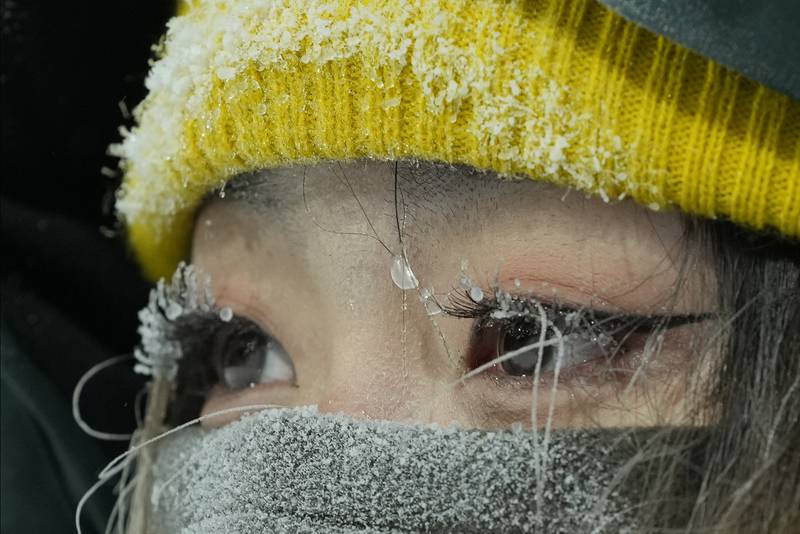Even in Beijing's isolation bubble, the excitement of the Winter Olympics is clear

China's borders have been virtually closed off for the past two years. Now, in a way, it's opening on a massive scale for the Winter Olympics. To pull this off in the middle of a pandemic, China is holding the Games in a fortress.
The journey into that strict bubble was like stepping into another world. The first thing I saw when I walked off the airplane was a sea of hazmat suits. It felt as if I had entered a giant medical facility, rather than an Olympic host city. Workers in white, full body protective gear, goggles, and masks directed passengers through the airport.
But underneath the goggles and masks, I could still see excitement in some of the workers' eyes. As I waited for my bags, a crowd of workers in hazmat suits asked if they could take a selfie with me. They, too, wanted to remember this unique Olympic moment.
Since the pandemic started, I've been through five quarantines in Beijing, Hong Kong and Tokyo. Each government has a different approach to tackling Covid-19. But the bottom line is, traveling during Covid-19, especially in Asia, is exhausting and nerve-wracking. Even compared to my previous trips, this one required, by far, the most meticulous planning and preparation.
Two weeks before the Games, I was required to start tracking my health in an Olympic app every day. I self-isolated during that time to avoid infection.
I took a special bus straight to a designated Olympic hotel surrounded by temporary walls. As I waited in my room for the results of the airport Covid-19 test, waves of anxiety hit me. What if my test came back positive? Or what if it came back negative, but I was somehow infected during travel and I'd get a positive result during the mandatory daily test in a few days?
After all the painstaking preparations, I just wanted to be able to do my job and not spend my assignment in isolation. Thankfully, after an anxious six hour wait, my results came back negative. I will, however, need to be tested every day.
But the scenarios I was mulling in my head pale in comparison to the angst Olympic athletes experienced in the lead up to this Games. Several athletes told me they were self-isolating for a month before the Games, paranoid that a positive test result could derail the moment they've worked their entire careers for.
During my entire stay, I'm strictly confined to what Olympic organisers are calling the "closed loop" – a system of multiple bubbles – including venues, conference centres, and hotels – connected by dedicated transport.
The local staff for the Games are also part of the closed loop. In fact, they will have to quarantine for as long as 21 days before they can leave the Olympic "bubbles" and return to their homes elsewhere in China. This is no small sacrifice, especially since they've already missed the chance to spend Lunar New Year, the most important holiday in China, with their families.
On Lunar New Year day, I spoke to a local staffer for the Olympics near the media centre. She was standing by the fence inside the closed loop. Her husband and two young sons were metres away, separated by another fence, outside the closed loop. It was the closest they could get to each other to usher in the Year of the Tiger. Her two sons waved from afar, telling their mother how much they loved and missed her.
The woman told me this was the longest she'd ever spent apart from her children. She had worked in the 2008 Summer Olympics as well. Back then, she said it was like a big party. This time, she says everything leading up to the Games has just been tough.
By the time I departed for Beijing, I was fully vaccinated, had tested negative for Covid-19 twice, and had stocked my suitcase with face masks and snacks to eat if I failed a test and was forced to isolate alone for the entire Winter Games.
I boarded a special plane to Beijing just to transport Olympic participants. As the plane descended and the sky gradually turned into the dusty brown smog of Beijing's pollution, I longed to be able to travel throughout the city. I had lived in Beijing before moving to Tokyo 18 months ago and hadn't been back since. But this time, I won't be able to see relatives and friends, or visit my favourite restaurants.
